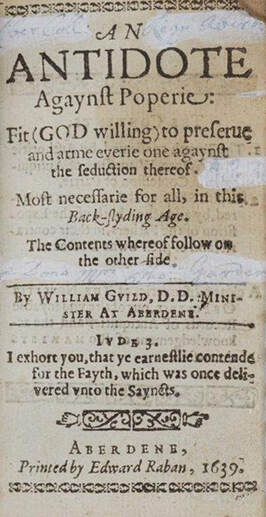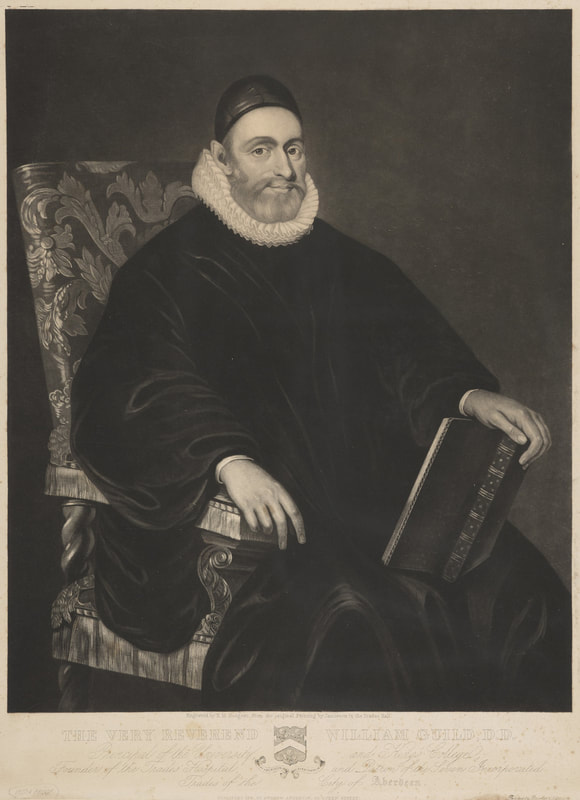In 1639, Edward Raban printed William Guild’s Antidote to Popery. Guild was one of the great scholars in early seventeenth century Aberdeen and had been appointed as one of the Ministers in 1631. He was on the periphery of the Aberdeen Doctors and eventually signed the National Covenant but with three qualifications (not rejecting the Articles of Perth, episcopacy, and reserving his duties to the King). When Dr Leslie was deprived of the role of Principal of King’s, Guild was chosen in his place. But he too was deprived of office in 1651. Guild was a great benefactor to the city (most notably around the Trades Hospital), and Guild Street is named in his honour. Dissatisfied with his treatment by the university, he bequeathed the bulk of his books to the universities of St Andrews and Edinburgh.
Guild’s strong beliefs are evident in his description on the title page where he states that his polemic was:
Guild’s strong beliefs are evident in his description on the title page where he states that his polemic was:
Dr William GuildRaban had a close association with Dr William Guild (1586-1657) . He was the son of a wealthy armourer and became Minister of the second charge in 1631. Guild initially sided with the Aberdeen Doctors and their concerns about the Covenant but eventually signed it with three limitations: he would not condemn the Articles of Perth, he would not condemn episcopal government and he reserved his duty to the King. Guild assisted in purging both St Machar’s Cathedral and King’s College Chapel of ornaments. He was a benefactor in the city and Guild Street is named after him. Raban printed works by Guild but the association ran deeper. In 1653, William Guild was witness at the baptism of Raban’s grandson, William (son of Gavin Milne and Elizabeth Raban).
|




